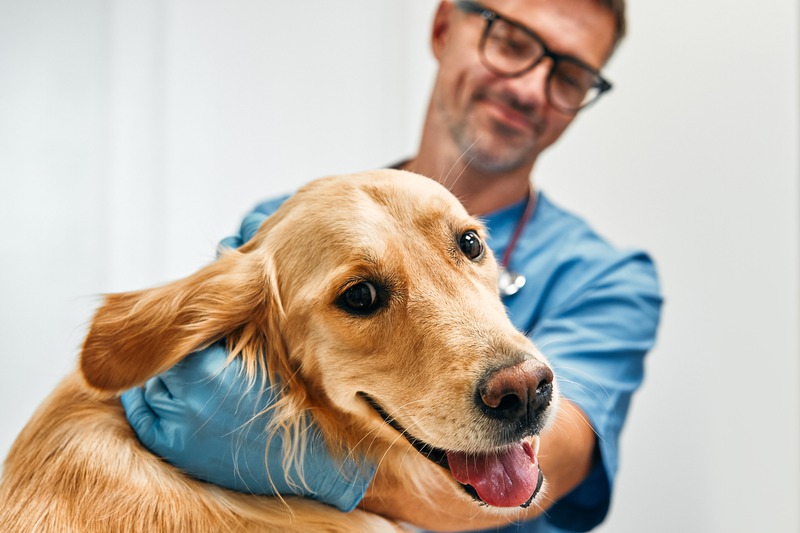
Which Lab Tests Are Vital for Your Pet’s Health Check?
As pet parents, we want our furry friends to live long and healthy lives. Just like humans, cats and dogs can’t tell us when something’s wrong inside their bodies. That’s where laboratory tests come into play. These tests provide a window into your pet’s health, letting you and your vet catch issues before they become major problems. So, let’s walk through some of the essential lab tests that are critical for your pet’s regular health checkups.
Understanding the Basics of Pet Lab Tests
When we talk about lab tests for our pets, we’re essentially looking at blood work and other biopsies that give us information on various body functions. They can reveal imbalances, infections, organ function, and so much more. Regular testing can help your veterinarian establish a healthy baseline for your pet, which is invaluable for detecting early signs of disease. Here are some of the core tests you might come across:
Blood Chemistry Panel
This is like a multi-functional tool in the world of vet diagnostics. A blood chemistry panel measures various substances in the blood and can provide information on your pet’s kidneys, liver, and pancreas, as well as other bodily functions. Lists of what’s typically measured include:
-
Blood urea nitrogen (BUN) and creatinine for kidney health
-
Alanine aminotransferase (ALT) and alkaline phosphatase (ALP) for liver function
-
Glucose levels to check for diabetes
-
Total protein, which can indicate a variety of conditions, including dehydration and diseases
Complete Blood Count (CBC)
A CBC is another all-star player. It measures different types of cells in your pet’s blood, which can help detect conditions like anemia, infection, and even leukemia. Components analyzed in a CBC include:
-
Red blood cells (RBCs) which carry oxygen
-
White blood cells (WBCs) which fight infection
-
Platelets, which help with blood clotting,
-
Hemoglobin and hematocrit, which also relate to anemia and blood loss
Urinalysis
This test checks your pet’s urine and is superb for catching urinary tract infections, kidney disease, diabetes, and more. It evaluates different aspects like:
-
Urine concentration to measure kidney function
-
pH levels, which can indicate urinary tract issues
-
Presence of substances like proteins, glucose, and white blood cells
Thyroid Function Tests
Thyroid diseases are common in pets, particularly in dogs and older cats. A thyroid test measures the levels of thyroid hormones in your pet’s blood, helping to diagnose conditions like hypothyroidism in dogs or hyperthyroidism in cats.
Fecal Tests
They might be a bit gross to think about, but fecal tests are important to check for intestinal parasites such as roundworms, hookworms, and others that can go unnoticed but can be harmful, or even fatal, to pets.
Why Regular Testing Is Important
Pets age faster than we do so health issues can progress rapidly. Regular testing from a veterinary diagnostic lab allows your veterinarian to detect conditions early, often before your pet shows any symptoms. Early diagnosis often means a better outcome. Regular tests help establish what is normal for your pet. This way, if something goes off-kilter, it’s easier to spot and understand what the change means. Some conditions, when caught early, can be managed with diet, lifestyle changes, or medication, preventing more severe health issues down the line.
When to Test
How often your pet should be tested varies depending on age, breed, and health history. As a general rule:
-
Puppies and kittens should have their initial tests done as part of their early health evaluations.
-
Adult pets (1-7 years) should be tested annually.
-
Senior pets (7 years and older) might need bi-annual testing due to the higher risk of health issues.
If you notice signs of illness or changes in your pet’s behavior, it’s important to check in with your vet. Emergency vet in Clinton Township services are readily available for those unexpected situations where you need immediate assistance.
Choosing the Right Veterinary Services
Not all veterinary practices are created equal. It’s paramount to find a clinic that provides a comprehensive range of services and has the appropriate facilities and equipment to perform essential tests. Facilities like Snider Vet are equipped not just for routine check-ups but also for more advanced diagnostic work when needed.
What to Look for in a Vet Clinic
Key elements to keep in mind when choosing a vet clinic include:
-
The range of services offered, including emergency care
-
Up-to-date laboratory facilities
-
Professional, caring staff
-
Good reviews from other pet owners
A good clinic will provide a partnership between you and their team, ensuring your pet gets the best possible care throughout their life.
Preparing for a Vet Visit
When it’s time for your pet’s lab tests, there are a few things you can do to help visit go smoothly:
-
Keep a record of any symptoms or behavioral changes.
-
Bring in any previous health records if this is a new veterinary clinic.
-
Discuss with your vet any concerns or questions you have about the tests.
-
Understand the cost and have a plan for follow-up care if needed.
Remember that the goal is to ensure the long-term well-being of your beloved companion.
Final Thoughts
Lab tests play a crucial role in pet health care, allowing early detection of issues before they worsen. Tests like a CBC or blood chemistry panel provide essential insights that, along with veterinary guidance, enhance pet longevity and life quality. Since pets often can’t communicate discomfort, regular diagnostics are critical. Trust in a good lab and vet clinic ensures proactive pet health management. Remember, these tests are not just routine checks but key to your pet’s well-being during annual visits.
